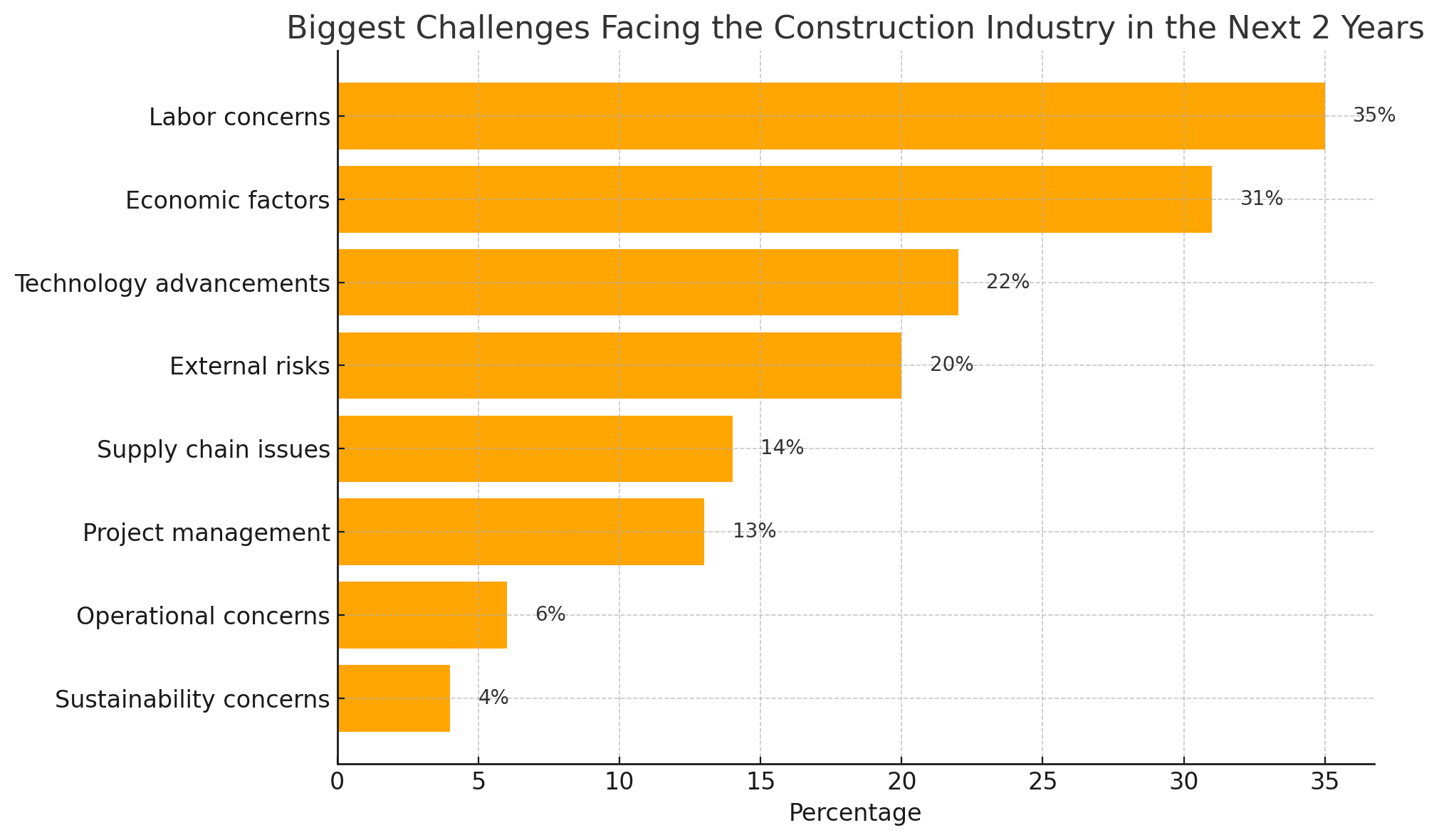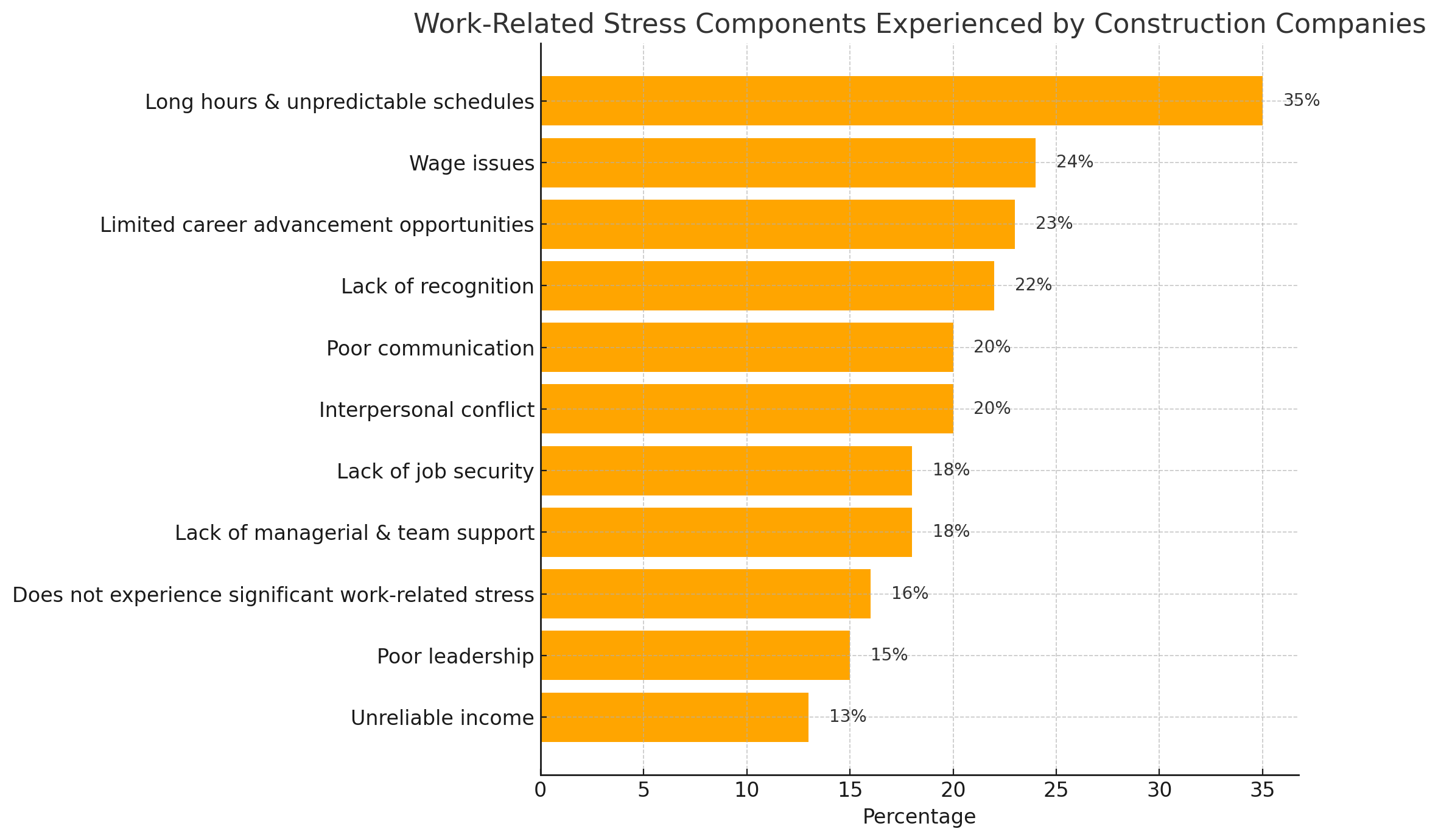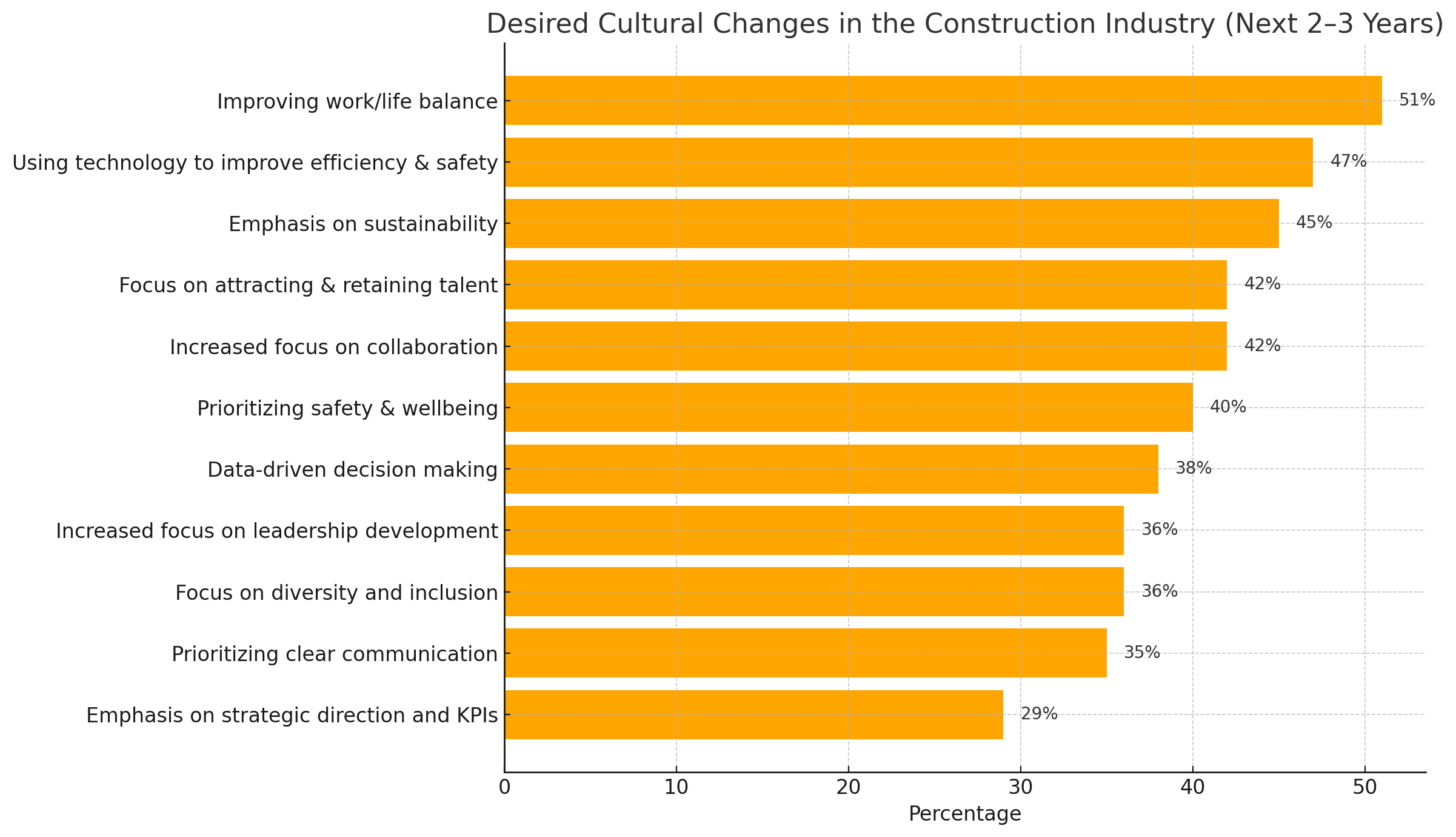The construction industry is at a crossroads. With 45% of survey respondents stating burnout as a primary reason people leave their companies, Procore Technologies‘s new report, “The Future State of Construction,” reveals the urgent need for cultural change.
The report highlights that while technology is seen as a solution to many challenges, the crucial role of the workforce is vital to ensuring the industry’s success. Still, companies could do more to attract and maintain their most valuable asset.
Report Methodology
To understand the current state of construction and identify key challenges, the report is based on over 1,200 interviews with construction decision-makers in the US, Canada, the UK, Ireland, the Kingdom of Saudi Arabia, the United Arab Emirates, Australia, and New Zealand.
Procore combined that data with conversations about the future with experts at leading construction companies.
The Companies’ Biggest Challenges
When asked about the biggest challenges construction leaders face in their countries, labor concerns emerged as a significant issue. This result aligns with other surveys and ongoing discussions within the industry.

Every construction executive I have spoken to considers recruiting young talent a tough nut to crack. The survey confirms that notion; 96% of construction leaders experienced generational challenges.
The respondents also emphasized economic factors, external risks, and supply chain issues. These challenges are significant because supply chain issues, for example, can lead to project delays and increased costs, impacting profitability and client satisfaction.
Given the latest news from the US, these can become even more prominent than when the research was conducted.
Burning Out Workers
As the availability of skilled workers is a growing challenge, how do those working in the industry feel about their jobs?
Procore’s report mentions an alarming figure: 45% of the survey respondents said burnout is a primary reason people leave their companies. Long hours and unpredictable schedules stood out as the reasons for work-related stress.


What’s Great About Your Job?
While many leave a company due to stress, leaders are motivated to stay in their positions, and money is a key motivator.
When asked about their motivation to continue working in the construction industry, 71% of the construction leaders mentioned financial growth. Career advancement and learning & development were also among the top three.
What Should Change?
Unsurprisingly, about half (51%) of the respondents expressed a desire for cultural improvements centered on work-life balance in the next two to three years. 47% mentioned using technology to improve efficiency and safety as a necessary cultural shift.
Somewhat surprisingly, 45% of the respondents wanted more emphasis on sustainability, while only 4% of the companies saw sustainability as a challenge.


The report also discusses the need for new leadership styles as the workforce evolves.
41% of respondents want their company to focus on leadership skills, which include technical skills but also increased self-awareness and people management skills. This might involve leaders who actively listen to their team, provide constructive feedback, and empower employees to take ownership of their work.
Enhancing communication while fostering openness and transparency is crucial to the transition.
What Can Technology Do?
The challenges in construction work cannot be resolved by simply adding technology to a flawed process. Experience has shown that the best efficiency and worker well-being result from rethinking how we plan, support, and conduct work.
I have previously written about Takt production as an example of how Finnish contractors have shortened project lead times while keeping workers happy and not sacrificing product quality. Takt benefits significantly from systematized material management, which is made possible by digitalized, standard-based product data exchange.
When you can depend on every participant to meet their responsibilities and deliver the accurate information others need in a timely and organized manner, many of the industry’s challenges diminish. Technology will both facilitate this and also yield a significant return on investment.
The Need for Change
The Procore report makes it clear: the construction industry must embrace cultural change and technology to address critical challenges like labor shortages, burnout, and efficiency.
By prioritizing work-life balance, investing in leadership development, and leveraging technology effectively, the industry can build a more sustainable, attractive, and successful future.
You can download Procore’s report at https://www.procore.com/ebooks/future-state-of-construction.
View the original article and our Inspiration here


Leave a Reply